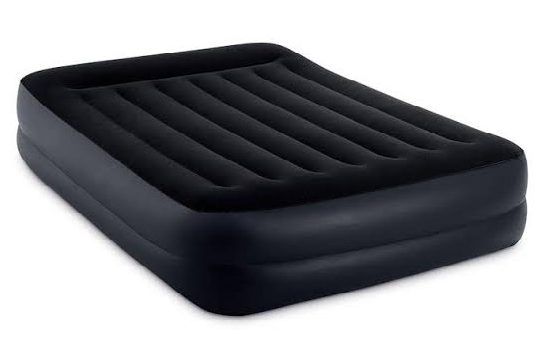Are you struggling to get a good night’s sleep due to a stomach ulcer? We understand how frustrating it can be when your sleep is disrupted by pain and discomfort. But fret not, because we’re here to help! In this article, we will introduce you to some useful tips and strategies that can help you sleep soundly, even with a stomach ulcer. So put your worries aside and get ready to enjoy a restful night of sleep!
Table of Contents
Understanding Stomach Ulcers
What is a stomach ulcer?
A stomach ulcer, also known as a peptic ulcer, is a sore or hole that forms in the stomach lining or the upper part of the small intestine. It occurs when the protective layer of mucus in the stomach is unable to control the acid produced by the stomach. Stomach ulcers can be quite painful and can disrupt your daily activities, including sleep.
Causes of stomach ulcers
Stomach ulcers are typically caused by a bacterial infection called Helicobacter pylori (H. pylori). Other factors that can contribute to the development of stomach ulcers include long-term use of nonsteroidal anti-inflammatory drugs (NSAIDs) such as aspirin or ibuprofen, excessive alcohol consumption, smoking, and high stress levels. It’s important to address these underlying causes to effectively manage stomach ulcers and improve your sleep quality.
Symptoms of stomach ulcers
The symptoms of a stomach ulcer can vary, but commonly include a burning sensation or pain in the stomach, bloating, belching, nausea, and vomiting. These symptoms can be exacerbated during the night and make it difficult to fall asleep or stay asleep. It’s essential to identify these symptoms and seek medical advice to prevent further complications and improve your sleep.
Managing Pain and Discomfort
Over-the-counter pain relievers
Over-the-counter pain relievers, such as antacids or proton pump inhibitors (PPIs), can provide temporary relief from stomach ulcer pain and discomfort. These medications work by reducing the amount of acid produced in the stomach. It’s important to follow the recommended dosage and consult with a healthcare professional if the pain persists or worsens.
Prescription medications
In severe cases, your doctor may prescribe stronger medications such as H2 blockers or antibiotics to treat the underlying causes of stomach ulcers. These medications work to reduce acid production and eliminate the bacterial infection. Remember to take these medications as prescribed and discuss any concerns or potential side effects with your healthcare provider.
Alternative pain relief options
Some individuals find relief from stomach ulcer pain through alternative methods such as acupuncture, herbal remedies, or relaxation techniques. While these methods may not have scientific evidence to support their efficacy, they may provide some individuals with relief. It’s important to consult with a healthcare professional before trying any alternative pain relief methods to ensure they are safe and suitable for your specific condition.
Dietary Tips for Better Sleep
Avoiding trigger foods and beverages
To improve your sleep quality and reduce the risk of irritating your stomach ulcer during the night, it is advisable to avoid trigger foods and beverages. These may include spicy foods, citrus fruits, caffeine, alcohol, and fatty or fried foods. Keeping a food diary can help you identify specific foods or drinks that worsen your symptoms, allowing you to make appropriate dietary adjustments.
Eating smaller, more frequent meals
Instead of consuming large meals, opt for smaller, more frequent meals throughout the day. This can help reduce the amount of acid your stomach produces at once, easing the burden on your digestive system and minimizing stomach ulcer symptoms that often worsen at night. Be sure to eat your last meal at least a few hours before bedtime to allow for proper digestion.
Including sleep-friendly foods in your diet
Certain foods can promote better sleep and contribute to the healing of stomach ulcers. Incorporate foods that are rich in vitamins A, C, and E, as well as zinc and probiotics, into your diet. These include fruits, vegetables, whole grains, lean proteins, and yogurt. Additionally, drinking chamomile tea before bed may also help soothe your stomach and improve your sleep quality.
Creating a Sleep-Friendly Environment
Choosing the right mattress and pillows
Selecting a mattress and pillows that provide adequate support and comfort is crucial for individuals with a stomach ulcer. A medium-firm mattress can help alleviate any pressure points and provide better spinal alignment. When it comes to pillows, consider using one that keeps your head and neck in a neutral position to avoid straining your stomach and exacerbating your ulcer.
Controlling light and noise
To create a sleep-friendly environment, it’s important to minimize both light and noise disturbances. Invest in blackout curtains or blinds to block out external light sources that can interrupt your sleep. Additionally, earplugs or a white noise machine can help drown out any disruptive noises that may affect your sleep, allowing you to rest undisturbed.
Maintaining a comfortable room temperature
Maintaining a comfortable room temperature is key to getting a restful night’s sleep. Keep your bedroom cool, ideally between 60-67 degrees Fahrenheit (15-19 degrees Celsius), as a lower temperature promotes sleep. Additionally, use breathable bedding materials to prevent excessive sweating and discomfort. Finding the right balance of temperature for your own preferences can significantly improve your sleep quality.
Establishing a Bedtime Routine
Setting a consistent sleep schedule
Establishing a consistent sleep schedule is essential for individuals with stomach ulcers. Try to go to bed and wake up at the same time every day, even on weekends. This helps regulate your body’s internal clock, making it easier to fall asleep and wake up feeling refreshed. Consistency in your sleep schedule promotes better sleep quality, allowing your body the adequate rest it needs to heal.
Relaxation techniques before bed
Engaging in relaxation techniques before bed can help calm your mind and body, making it easier to fall asleep. Consider incorporating activities such as deep breathing exercises, meditation, or gentle stretching into your bedtime routine. You may also find it helpful to take a warm bath or read a book to relax your mind and prepare yourself for sleep.
Limiting electronic device usage
The blue light emitted by electronic devices such as smartphones, tablets, and computers can interfere with the production of melatonin, a hormone that regulates sleep-wake cycles. To promote better sleep and support the healing of your stomach ulcer, it is advisable to limit electronic device usage at least an hour before bed. Instead, engage in more calming activities to prepare your body for rest.
Managing Stress and Anxiety
Identifying stress triggers
Identifying and understanding the triggers that contribute to your stress and anxiety is an important step in managing these conditions. Keep a journal to track situations or events that cause you stress, and try to find patterns. By recognizing these triggers, you can then focus on developing effective coping strategies to reduce stress levels, potentially improving your sleep.
Practicing stress-reducing activities
There are many stress-reducing activities that you can incorporate into your daily routine to help manage stress levels and promote better sleep. Some proven techniques include deep breathing exercises, yoga, tai chi, meditation, and engaging in hobbies or activities that bring you joy. Experiment with different activities to find what works best for you in terms of relaxation and stress relief.
Seeking support from friends, family, or a therapist
Don’t hesitate to reach out for support when you need it. Confide in friends, family members, or a therapist about your concerns and the impact that your stomach ulcer may be having on your sleep. They can provide guidance, empathy, and assistance in coping with stress and anxiety, which can significantly improve your overall well-being and sleep patterns.
Sleeping Positions and Pillows
Sleeping positions to reduce discomfort
Choosing the right sleeping position can help reduce discomfort and alleviate symptoms caused by a stomach ulcer. Sleeping on your left side is often recommended as it can help prevent stomach acid from flowing back into the esophagus, reducing acid reflux. Alternatively, elevating the head of your bed slightly can also help prevent acid reflux and minimize discomfort during the night.
Choosing the right pillow for stomach ulcer sufferers
When you have a stomach ulcer, finding the right pillow can make a noticeable difference in your sleep quality. Look for a pillow that provides adequate support for your head, neck, and spine. Memory foam or latex pillows are often recommended as they conform to your shape and help alleviate pressure points, ensuring a more comfortable and restful sleep.
Using additional pillow support
In some cases, using additional pillow support can further enhance your sleep comfort. Placing a pillow or cushion under your knees can help reduce strain on your lower back and promote better spinal alignment. Additionally, placing a pillow between your legs if you sleep on your side can help alleviate any hip or pelvic discomfort, providing you with a more comfortable sleep experience.
Exercising for Better Sleep
Benefits of regular exercise
Regular exercise not only promotes better physical health but also plays a crucial role in improving your sleep quality. Engaging in moderate-intensity aerobic exercises, such as brisk walking or swimming, can help reduce stress levels, alleviate anxiety, and improve mood. These factors contribute to a more relaxed state of mind, making it easier for you to fall asleep and stay asleep throughout the night.
Exercises suitable for stomach ulcer patients
Considering your stomach ulcer, it’s important to engage in exercises that are low impact and do not exacerbate any discomfort or pain. Walking, yoga, tai chi, gentle stretching, and swimming are particularly suitable for stomach ulcer patients. Always consult with your healthcare professional before starting any exercise routine to ensure it’s safe and appropriate for your individual condition.
Timing exercise for optimal sleep
The timing of your exercise routine can impact your sleep quality, especially if you have a stomach ulcer. Avoid exercising too close to bedtime, as this can stimulate your body and make it difficult to fall asleep. Aim to finish exercising at least a few hours before bed, giving your body enough time to wind down and prepare for a restful night’s sleep.
Hydration and Sleep
Importance of staying hydrated
Staying hydrated is essential for overall health, including the quality of your sleep. Dehydration can lead to physical discomfort and disruptions in your sleep patterns. Ensure you drink enough water throughout the day to stay properly hydrated, keeping in mind any restrictions or guidelines provided by your healthcare professional.
Best drinks for stomach ulcer sufferers
When it comes to choosing the best drinks for stomach ulcer sufferers, it’s important to avoid acidic or irritating beverages. Opt for water, herbal teas, and non-citrus fruit juices. These drinks are generally gentle on the stomach and less likely to cause discomfort or trigger acid reflux during the night. Pay attention to your body and avoid any drinks that worsen your symptoms.
Hydration habits before bed
Maintaining proper hydration habits before bed is crucial for a restful night’s sleep. It’s best to avoid excessive fluid intake close to bedtime to prevent frequent trips to the bathroom during the night. Instead, drink an adequate amount of water throughout the day to maintain hydration levels, ensuring you are neither overly thirsty nor bloated when it’s time to sleep.
Medication Management and Sleep
Scheduling medications for sleep
If you take medications for your stomach ulcer, it’s important to consider their timing in relation to your sleep. Some medications may cause drowsiness, while others may have the opposite effect. Discuss with your healthcare professional the best time to take your medications to support your sleep routine and minimize any potential side effects that could disrupt your rest.
Side effects to be aware of
Be aware of any potential side effects that your medications may have on your sleep. Some medications can cause insomnia or disrupted sleep patterns. If you experience any sleep-related side effects, inform your healthcare professional, who may be able to adjust your dosage or prescribe alternate medications to alleviate these issues.
Consulting with a healthcare professional
As with any medical condition, it’s essential to consult with a healthcare professional when managing a stomach ulcer and its impact on your sleep. They can provide personalized advice, medication management, and treatment options tailored to your specific needs. Regular check-ups and open communication will help ensure you are on the right track to effectively managing your stomach ulcer and achieving restful sleep.
In conclusion, managing a stomach ulcer and getting a restful night’s sleep requires a multi-faceted approach. From understanding the causes and symptoms of stomach ulcers to implementing lifestyle changes and seeking professional guidance, there are numerous strategies to improve your sleep quality. By following the tips and advice outlined in this article, you can take proactive steps towards sleeping soundly and nurturing your overall well-being while living with a stomach ulcer. Remember, consistency and patience are key, and with time, you can find the restful sleep you deserve.




